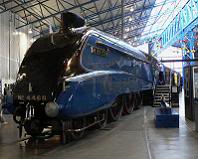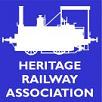HIGH SPEED RAIL (LONDON-WEST MIDLANDS) BILL
|
24 January 2017: Lord Bradshaw moved Clause 1: Power to construct and maintain works for Phase One of High Speed 2 - Amendment 1
speaking to this amendment Lord Faulkner of Worcester (Lab) Will the noble Earl take the trouble to read the very wise words of noble Lord, Lord Brabazon, who spoke a few moments ago about the consequences of accepting these amendments? If one of them were passed, the Bill would have to be re-hybridised. It would have to go back to the hybrid Bill Committee and months and months would be taken up by looking at the Bill again with these provisions in it. I cannot believe that the House would want to do that, bearing in mind the exceptionally good job that the hybrid committee did. I see a number of its members are in the Chamber at the moment and they deserve the thanks of all of us for looking at this Bill in such detail and displaying such patience in listening to huge numbers of petitions and far too many lawyers who were presenting them on behalf of people with, in some cases, entirely spurious objections. The committee went through that very well and came up with a series of recommendations for change, and the Government, to their great credit, have accepted them all either in spirit or literally. The fact that the committee has done that job and we have a Bill to which we can give Third Reading and get work under way is very important. Old Oak Common is a wonderful place. It is where my great-grandfather lived in a Great Western Railway house when he was a top link driver on the railway in the early years of the 20th century. But it is not a place where people want to go when they are travelling on high-speed trains from Birmingham or the north of England. Indeed, the practicality of finishing a journey there has been addressed by Transport for London. It answers the point made by my noble friend Lord Berkeley about Crossrail. Yes, Crossrail is going really well and will be a great success. But when HS2 arrives at Old Oak Common, it is estimated that about a third of the passengers will get off, get on to Crossrail and go into the City. However, if they were all required to go on to the City, the difference between these two—HS2 terminating at Euston or at Old Oak Common—would, in the words of Transport for London, be the difference between Crossrail coping and Crossrail falling down. That would be the implication of accepting this amendment. read this contribution Amendment 2 moved by Lord Stevenson of Balmacara speaking to this amendment Lord Faulkner of Worcester (Lab) My Lords, I pick up the theme of my noble friend Lord Snape and express my disappointment at the lack of ambition that some Members of this House seem to demonstrate towards our capacity as a nation to build wonderful railways. Some of the finest structures created in the 19th century were built by railway engineers, whether it was viaducts through the Peak District or magnificent railway stations. To have such a lack of ambition and to say, “Gosh, this new line must all go in tunnels because it’s going to be so obtrusive”, is very disappointing. Also, as my noble friend says, it is very expensive. I remember at one of the early briefing meetings given by Sir David Higgins I asked him, “Wouldn’t it be possible to reduce the cost of the project if we didn’t have so much tunnel in it?”. He said, “Yes, but I’m not allowed by the Government to answer that question”. I am not sure whether it was this Government or the previous one who made it impossible for him to answer, but it has undoubtedly added to the cost. I also make a plea for the people who like travelling by train and love the Chilterns and want to be able to see them. There is no reason why we should not be able to see them rather than the inside of a tunnel from the railway. Look at the other engineering projects in the Chilterns. The M40 is a six-lane motorway which carved a swathe through the Chiltern escarpment, and probably the largest intrusion into an area of outstanding natural beauty in the south of England. There was a lot of objection. It is used by very large numbers of people, but it still causes an intrusion and environmental damage far greater than the two-track railway that we are discussing this evening. Wendover benefits from a new bypass, which is being constructed to one side of the existing Chiltern railway line and is producing a huge amount of noise and traffic. It is very nice for the town because traffic is taken out of the town, but the new railway is going to go alongside that as well. Why is that somehow unreasonable compared with the road that is already there? The Chilterns are beautiful. The environment of the Chilterns will be enhanced by the building of the railway, and many more people will be able to enjoy them. There is no need for these amendments. read this contribution |


































